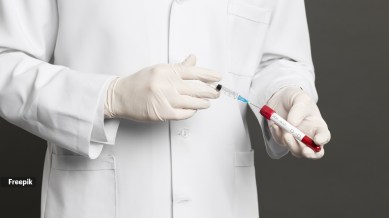📣 For more lifestyle news, click here to join our WhatsApp Channel and also follow us on Instagram
Orthopaedic surgeon lists ‘3 essential health tests every Indian should consider’; we dive deeper
For someone with no family history of diabetes, how early should they begin testing?

When it comes to health, early detection can often make all the difference. Orthopaedic surgeon Dr Manan Vora recently shared a reminder on Instagram about preventive screenings that are often overlooked but could be lifesaving. In his words, these are the “3 essential health tests every Indian should consider.”
The first, he said, is the lipid profile test. “High cholesterol silently blocks arteries and is one of the biggest causes of heart attacks in India. This test checks your cholesterol levels — LDL (bad cholesterol), HDL (good cholesterol), and triglycerides. High LDL builds up plaque in arteries, reducing blood flow and increasing the risk of stroke and heart attack, often without symptoms.”
monthly limit of free stories.
with an Express account.
Next comes the blood sugar test, which he called particularly vital for Indians. “India is the diabetes capital of the world. High sugar levels damage your heart, kidneys, and even your brain. This test shows how well your body is handling glucose. Consistently high sugar levels can silently damage blood vessels, nerves, eyes, and kidneys and even increase the risk of dementia. Detecting it early prevents lifelong complications.”
The third on his list is the bone density test. “After 40, bones weaken faster. Low bone density means even a small fall can lead to fractures. This test measures calcium and mineral content in your bones. With age, bones lose strength, especially in women after menopause. Low density means a higher risk of fractures, spinal issues, and long recovery times.”
To gain more insight into these tests, we spoke with an expert.
At what age should people ideally start getting lipid profile tests, and how often should they be repeated?
Dr (Prof.) Raju Vaishya, senior consultant orthopaedic and joint replacement surgeon at Indraprastha Apollo Hospitals, New Delhi, tells indianexpress.com, “The Cardiologist Society of India (CSI) now recommends that ‘all individuals get a lipid profile as early as age 18,’ even using non-fasting tests for convenience and early detection. For children aged 9-11, screening is sometimes advised—especially to catch familial hypercholesterolemia—though in India, 18 remains the standard starting point.”
In general, he adds that one must repeat the test every 4-6 years if the results are normal. Frequency of testing should increase after age 45 or sooner, if risk factors like obesity, a strong family history, or heart disease are present.
For someone with no family history of diabetes, how early should they begin testing?
Dr Vaishya notes, “International guidelines suggest starting screening between ages 30-45, repeating every 3 years if values remain normal.”
He lists the following lifestyle measures to keep sugar in check:
Balanced diet: Emphasise whole grains, vegetables, lean proteins; minimize refined carbs and sugars.
Regular physical activity: Aim for at least 150 minutes/week of moderate exercise.
Maintain healthy weight/BMI: Especially given higher risk thresholds for South Asians (BMI ≥ 23).
Annual monitoring: Especially for blood pressure, lipids, and signs of metabolic risk.
How can people know if they need a bone density test earlier than when they turn 40?
While routine screening typically begins at age 65 (women) or 70 (men), Dr Vaishya says, earlier testing is advised if any of the following are present under 50, peri and post menopausal status:
- Fragility fracture (e.g., hip, wrist, spine)
- Rheumatoid arthritis or chronic inflammatory disease
- Long-term steroid use
- Low body weight
- Parental hip fracture
- Other risk factors like smoking, heavy alcohol use, or eating disorders
“Preventive steps to reduce osteoporosis/fracture risk include ensuring adequate calcium and vitamin D through diet and sunlight, engaging in weight-bearing and muscle-strengthening exercises, limiting smoking and excess alcohol intake, and early lifestyle focus, including nutrition, physical activity, and hormonal health,” concludes Dr Vaishya.
DISCLAIMER: This article is based on information from the public domain and/or the experts we spoke to. Always consult your health practitioner before starting any routine.
📣 For more lifestyle news, click here to join our WhatsApp Channel and also follow us on Instagram